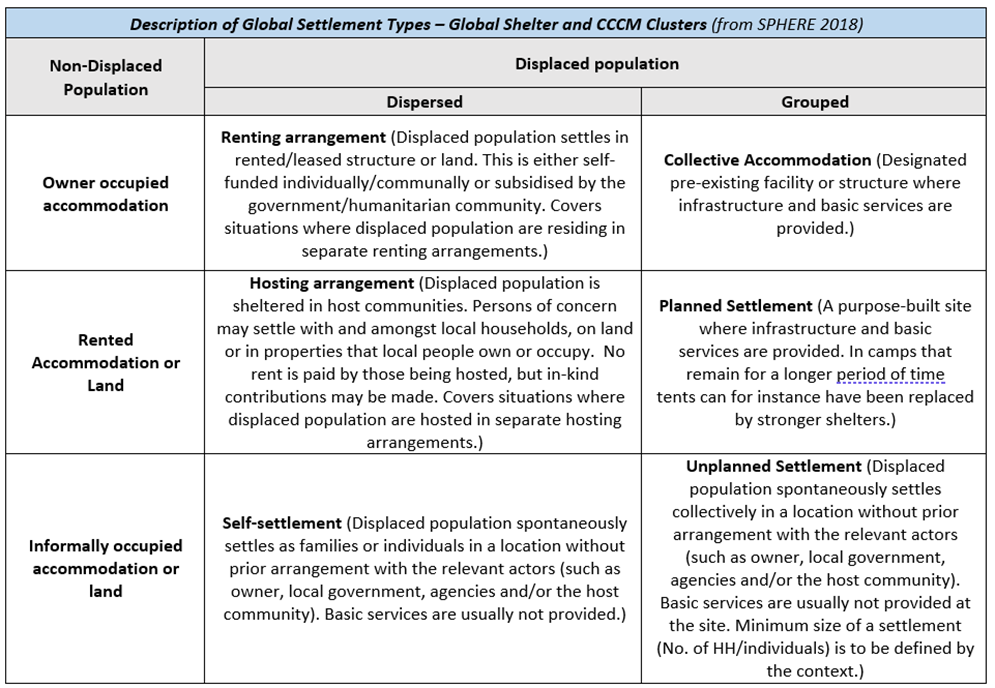DTM for CCCM
DTM worked with Global CCCM Cluster to identify information needed for analysis and response that DTM can collect through the methodologies that DTM field teams use. They also jointly developed short guidance and presentations that can help DTM and Partners in the field better work together to collect and use data for sectoral and inter-sectoral response.
Information commonly needed for CCCM are included in the DTM Field Companion for CCCM, formatted as a Data Analysis Plan: it includes suggested phrasing of questions and options for reply as well as descriptive analysis and possible use of data for each information need.
DTM Field Companion for CCCM is available in EXCEL and in Pdf. In the pdf version, one information need is detailed in each page, while in the excel version, one information need is detailed in each row. The information is identical on both versions.
Settlement Types
In addition to the DTM Field Companion, DTM and Global CCCM clusters worked together to suggest solutions to a common challenge: Using different definitions of settlement types has been proven to be source of confusion and inability to use data for sectoral and intersectoral analysis. It is extremely important that used definitions are clearly explained (and documented) and shared between DTM and main actors (e.g., Shelter and NFI cluster/WG, CCCM Cluster /WG, other clusters, OCHA or other coordination actor)
CCCM cluster /WG in country are responsible to provide DTM with the agreed definitions of Settlement typologies that DTM will use in data collection.
In the absence of agreed definition, DTM can use the Global Definitions, as provided to DTM by Global CCCM Cluster:

In case country-specific definitions are developed and used, it is important to document the correspondence between those and Global definitions, so to avoid inaccurate analysis of data at regional or global level.
Available Tools:
- 2-pager document on FAQ on DTM for Clusters, in: https://dtm.iom.int/dtm-partners-toolkit/what-dtm
- Presentation on What DTM is and what can you do with it, in: https://dtm.iom.int/dtm-partners-toolkit/presentations-dtmen-fr-and-sp
- Training on safely responding to Incidents Disclosure during data collection (for enumerators, GBV, Protection and Data Collection coordinators): https://dtm.iom.int/dtm-partners-toolkit/trainings
- Correspondence Shelter Types local to global, in: https://dtm.iom.int/dtm-partners-toolkit/settlement-and-shelter-types
- DTM Field Companions include specific information needs that Global experts identified for most sectors: https://dtm.iom.int/dtm-partners-toolkit/field-companion-sectoral-questions-location-assessmentt. Field companion is available for CCCM in two formats:
- PDF (one page one question): https://dtm.iom.int/dtm-partners-toolkit/field-companion-pdf,
- EXCEL (one row one question): https://dtm.iom.int/dtm-partners-toolkit/field-companion-excel
